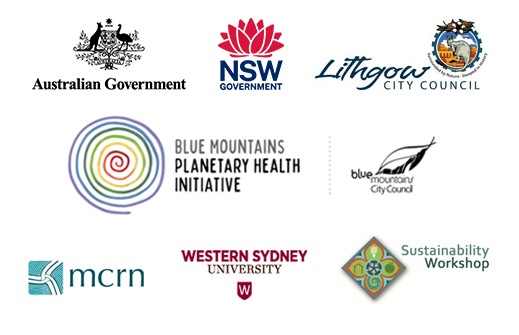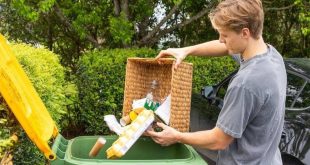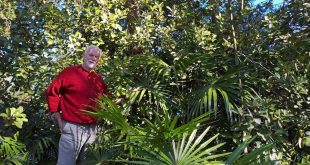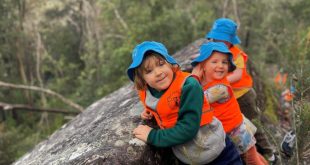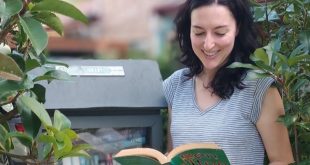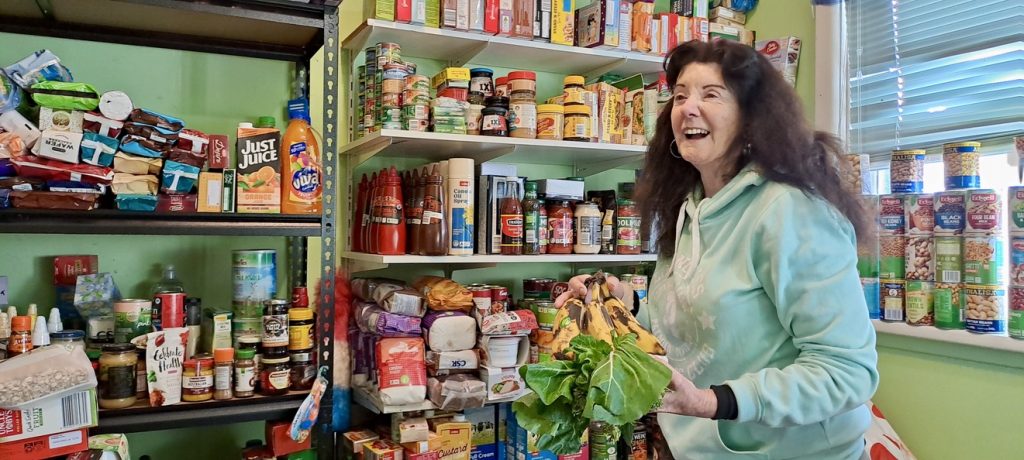
Morna Colbran at the Winmalee Neighbourhood Centre. (Hamish Dunlop)
Story by Hamish Dunlop
Winmalee Neighbourhood Centre General Manager Morna Colbran talks about the value of volunteering for the health of people and the planet. She also shares how Winmalee Neighbourhood Centre is providing support after disasters and is responding to food scarcity, homelessness, challenges specific to women and financial literacy.
Key Points:
- The heart of volunteering is giving back: to create community and a better world.
- Food waste and hunger are a planetary and community challenge. Three percent of Australia’s carbon emissions come from food waste.
- There need to be safety nets in our society to make sure we look after our most vulnerable. Neighbourhood Centres with their local knowledge are a fundamental part of that system.
Share this article:
Food scarcity and waste
I’ve come to Winmalee Neigbhourhood Centre to interview Morna Colbran. Inside there is food everywhere, floor to ceiling in some places. It’s not just shelf-stable products such as flour and tomato sauce, there are plenty of fresh vegetables too. In her office where we sit down to talk, shelves are stacked with cans, jars, packets and bottles. I ask if I can take a photo and Morna steps out to retrieve some fresh vegetables. “I want to have these in,” she says, motioning to the bananas. “They’re not perfectly yellow, but they are perfect to eat.”
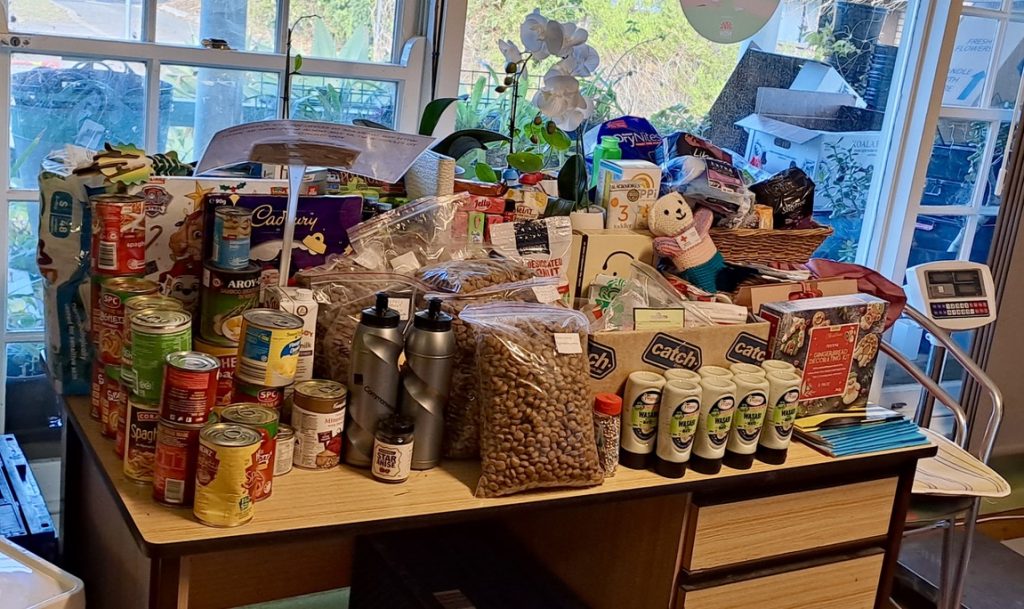
Some of the food that will be distributed to the community by the Neighbourhood Centre. (Hamish Dunlop)
The Centre collects fresh food from Winmalee Coles’ dock every day. Using a van funded by the Environmental Protection Association, they deliver food across the Mountains including to Thrive Services Fresh Food Hampers in Katoomba, Pinnaroo OOSH (Out Of School Hours Care) in Winmalee, and importantly the food bank in Marsden Park. The EPA money also supported the purchase of two industrial freezers enabling food to be stored for timely distribution. “People can come in anytime to get food. We have free packs and operate a discounted food pantry on Thursdays.”
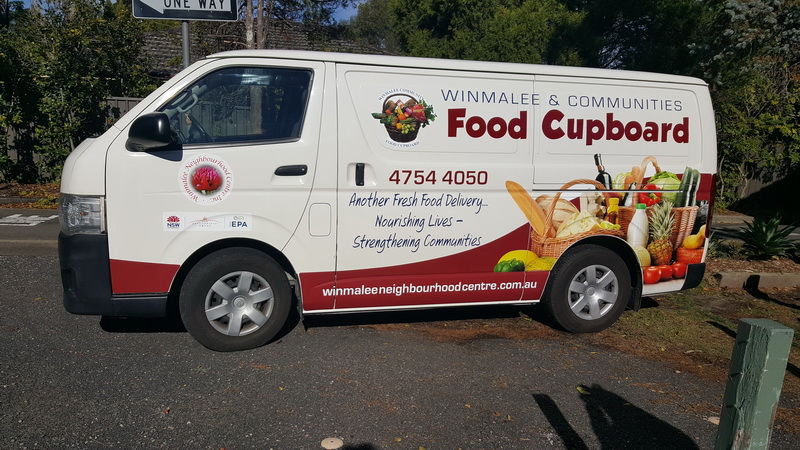
The Centre’s van. (Winmalee Neighbourhood Centre)
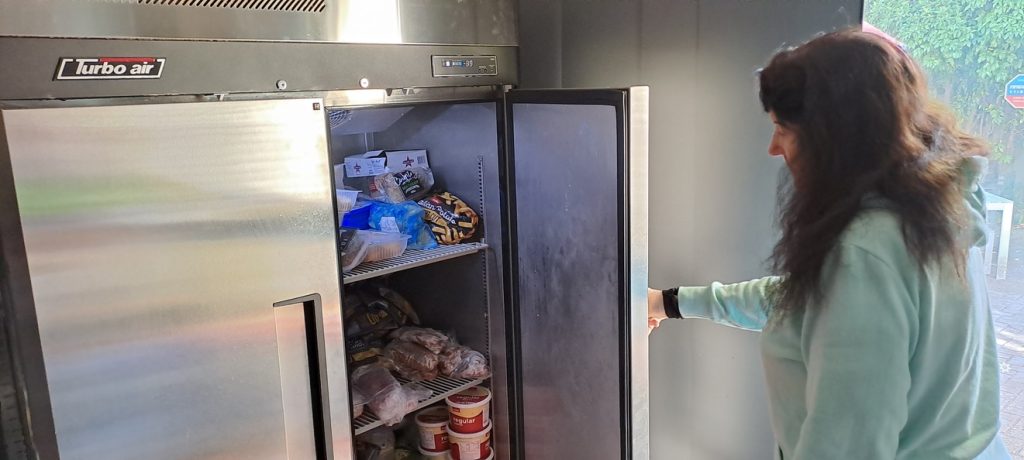
One of the industrial fridges. (Hamish Dunlop)
Morna is highly sensitive to food waste and hunger, partly because she grew up in poverty. She sees it as a planetary and community challenge. The Department of Climate Change, Energy, Environment and Water estimates that each year 7.6 million tonnes of food are lost across the supply chain. In individual terms this is more than 300Kg per person.
Thirty percent of this is at the household level. Morna says that food waste isn’t just the food itself, but the people it could be feeding, the thousands of gigalitres of water to grow it and the greenhouse gases created. Three percent of Australia’s carbon emissions come from food waste. “We can all have an impact on this by minimising waste in the home.”
A call to action
Morna is funded for 2.5 hours per week at the Centre but works full-time. She’s been doing so for almost 15 years. It demonstrates an extraordinary commitment to the community. This year she was voted as Blue Mountains Citizen of the Year. In the photo of her holding the award, she’s looking back at the camera with the expression of someone for whom the award is a journey marker, not a destination. Speaking with her has certainly confirmed that.
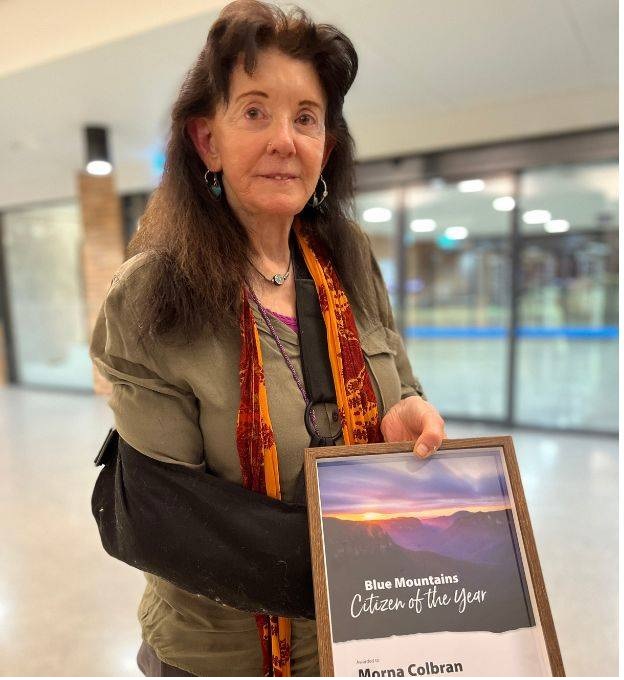
Morna with her award. (Blue Mountains Gazette)
I ask her why she volunteers so much of her time and energy. “People think that volunteering is about giving up a block of their time. This is a transactional way of looking at what it is to be part of a community. It misses the heart of volunteering. Don’t you want to leave something better on this earth?” she says. “I brought my son up volunteering. He was involved from 5 years old. For him, giving back is part of being in a community.”
Morna thinks that many Australians have a strange relationship with the idea of volunteering. “If you went to India, people would think you’re amazing, but it’s the symbolic nature that people are really taken with. In Australia, we somehow consider our most vulnerable to be less worthy. Part of it’s the idea that it’s the government’s job to look after people. It’s somebody else’s job. Our job is to improve our circumstances – to get more.”
“I’m happy to come home and sit with a cup of tea at the end of the day,” she says. “I look forward to that. I don’t need overseas holidays or things to make me happy and fulfilled. I have a roof over my head, healthy food to eat, money to pay my bills and importantly, connection to community. It’s enough.”
Morna says the interesting thing about disasters, such as our bushfires and flooding, is that they provide an opportunity to reassess and reshape our thinking and feeling about what a community is. She says we can discover generous ways to be part of our communities. “You certainly see that to some degree up here. We can all do more than we think we can.”
Self-determination and resilience
Morna’s mother left her partner, with her and her brother, when they were young. She was proud, and as Morna says, wouldn’t take handouts. Life was a struggle. Her mother worked as a midwife and supplemented her income by playing the piano and singing at bars. She did egg delivery for a while too. Morna has memories of being in the back of the egg van driving around the city.
Her history has made Morna a staunch advocate for people determining their own futures and learning skills that make them more resilient. She sees education as a large part of her and the Centre’s job. She says financial resilience is the biggest problem. “At one end of the scale you have old ladies not wanting to turn on the heaters in winter or even the TV to save on their electricity bills. At the other end young people are coming to get food because they’ve spent their money on a new phone.”
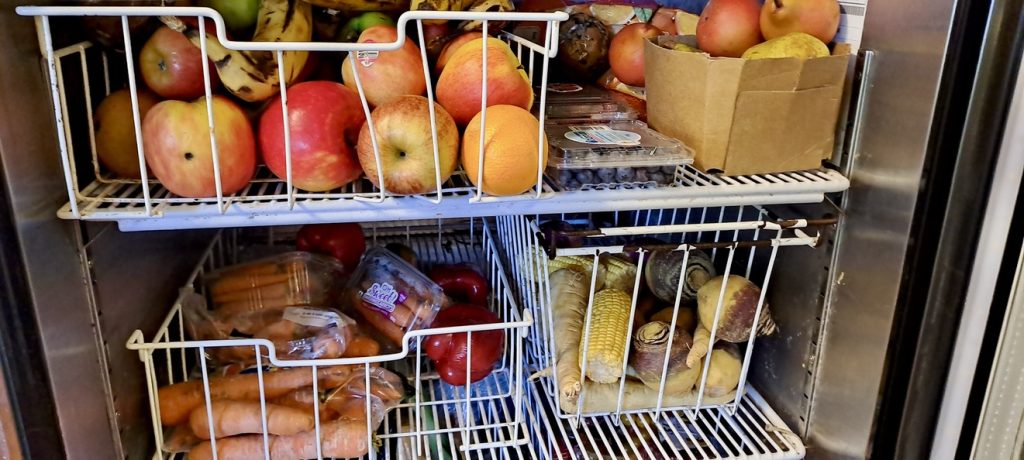
Imperfect food, perfect to eat. (Hamish Dunlop)
She wishes she could have a financial counsellor at the centre. “You need to get them when they’re hot,” she says. “The success rate for getting people to come back or engage online is very low.” She also notices the lack of food literacy. “We’ve run courses on how to assess whether food is good to eat and what healthy eating looks like. We also published a recipe book that shows people how to create nutritious, delicious food out of what’s in season.”
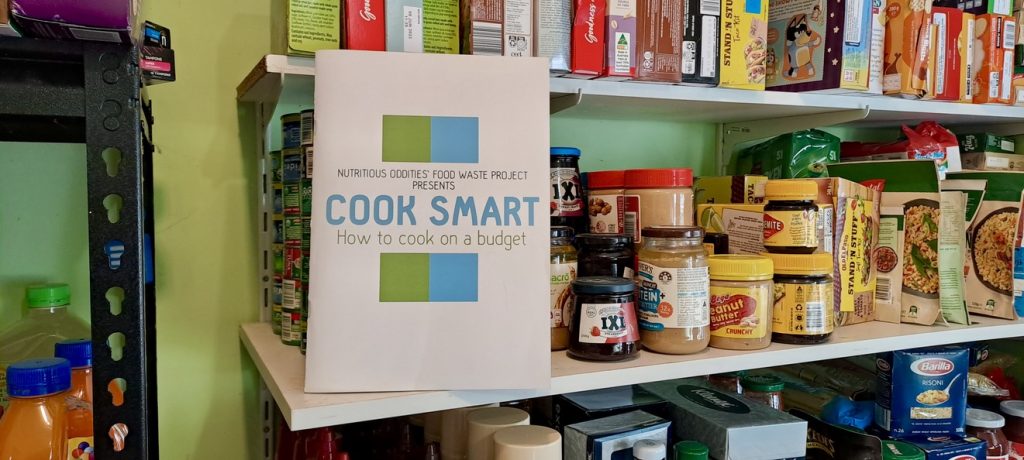
Cooking smart. (Hamish Dunlop)
Women and disaster
After the 2013 fires, Morna noticed an increase in domestic violence. In 2014, she petitioned the state government to prioritise women. Looking at homelessness, the 2019 census indicated homelessness among women was a growth category, especially women over 50. “We see it every day,” Morna says. “Women come in and talk to us. They’re often couch surfing or living in their cars. I can help them with food and fuel vouchers and point them in the direction of the Department of Communities and Justice.”
The Centre runs or provides space for a spinners and weavers group, art therapy and a lead-lighting group. Morna runs the art therapy sessions and facilitates the lead-lighting. “These groups provide a safe space for women to participate and share. This is with other women suffering hardship, but also women who can provide a sense of what’s possible. “There’s a value issue when it comes to women,” Morna says. “Our society doesn’t know how to value middle-aged and older women. This makes it hard for some to see how they can play a positive role in our community.”
“After the 2013 fires the Centre also ran a project called Women Skilled and Ready. It shared practical skills to help with psychological preparedness. An example was talking with women about what to do when they’re at home on a 40-degree day and the is wind coming up. “Having a plan in mind,” Morna says. “The RFS came in and helped create bushfire preparedness plans and taught practical skills like how to hose down a property and how to start petrol-driven pumps.”
Supporting the community
The Centre offers a wide range of other support services. Funding primarily comes from the Department of Social Services and the Department of Communities and Justice and covers everything from staff salaries to vouchers for Bunnings, Officeworks, Kmart and Coles and for firewood and fuel. Morna says the funding is not enough to do what they need to do, which is part of the reason she volunteers so much of her time.
Services range from energy and water advocacy to the provision of No Interest Loans and support for people who have been diagnosed with cancer. There is an ATO-trained volunteer to help with tax-related issues. A steady flow of workshops and talks are scheduled too. In October there is a free arthritis management talk. Over winter the Centre has been able to provide warm items such as rugs and scarves with the support of Bev Milner Knit for Charities. Detailed knowledge of her community enables Morna to target where needs are greatest.
Post the devastating 2013 Winmalee fire, the Centre ran various grant-funded projects to help with disaster recovery. These included creating a mosaic at Yellow Rock Park and making bird feeders to bring back the birds. The Centre was able to connect people with local business to help them rebuild their lives and ran propagating workshops for people who lost their yards.
The Centre also provided practical items such as sheets and other necessities. Morna organised for Landcare to come and talk about post-bushfire weeds and Warwick Coghlan from Winmalee Apiary gave a talk on how to support pollinators.
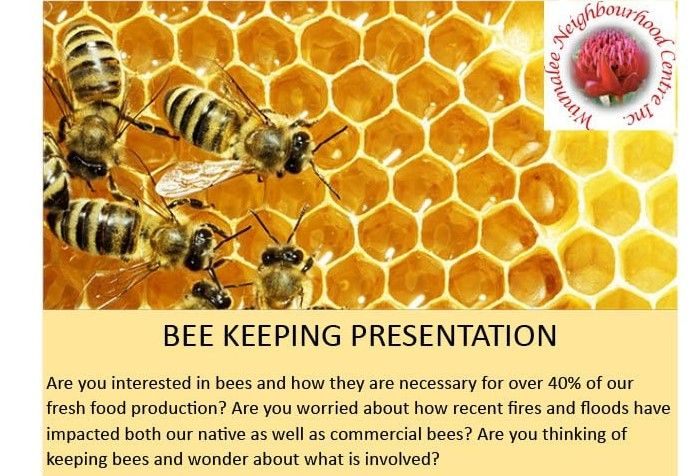
Advertising Warrick Coghlan’s talk about bees and how important they are for food production. (Winmalee Neighbourhood Centre)
Resilience and support
Speaking with Morna, I am struck by her passion for people to learn to look after themselves. But from everything she and the Centre’s team do, she clearly believes that inequities and unexpected life events put some people at a disadvantage. She tells me a tragic story about one family’s loss and says she hears many similar stories. “Some people bounce back,” she says. “Sometimes with our support, people can change their lives for the better. But there are also people who just perpetually struggle. There need to be safety nets in our society to make sure we look after our most vulnerable. Community Centres with their local knowledge are a fundamental part of that system.”
The need for donations
“Winmalee Neighbourhood Centre does not receive large funds and relies on donations to enable the vital work we do. We have a small group of staff who are part time but manage to do wonderful work with families who are facing tough times. We welcome unconditional donations to the Winmalee Neighbourhood Centre Inc. to assist our work in the ongoing provision of community services to the people of the Blue Mountains and our emergency relief programs to Penrith, Blue Mountains, Hawkesbury, Lithgow & Central West.”
Take Action:
- Donate to the Centre and visit Winmalee Neigbhourhood Centre to find out about programs and ways to volunteer.
- Contact The Department of Communities and Justice for legal and housing support and assistance for victims of crimes including domestic violence and child abuse. The website provides contact details for services including a Disaster Welfare Assistance line.
- Contact Financial Counselling Australia for links to provide support for financial difficulty. It coordinates the National Debt Helpline (NDH), which consists of a national phone service operating under the 1800 007 007 number and is complemented by the National Debt Helpline website.
Share this article:
This story has been produced as part of a Bioregional Collaboration for Planetary Health and is supported by the Disaster Risk Reduction Fund (DRRF). The DRRF is jointly funded by the Australian and New South Wales governments.
